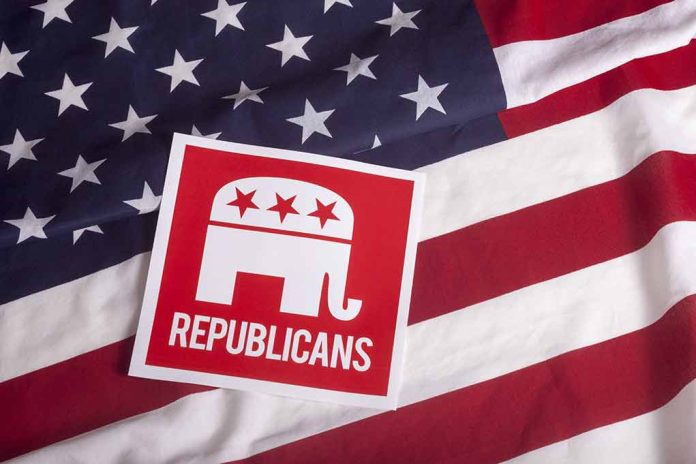
House Republicans have betrayed voters by rejecting spending cuts from Elon Musk’s Department of Government Efficiency while passing a bill that will add $3.8 trillion to the deficit over a decade, Governor Ron DeSantis says.
Key Takeaways
- The One Big Beautiful Bill Act passed by House Republicans reduces spending by $1.5 trillion over a decade while extending Trump’s 2017 tax cuts, but faces opposition from fiscal conservatives in the Senate.
- Florida Governor Ron DeSantis has condemned House Republicans for failing to implement spending cuts recommended by Elon Musk’s Department of Government Efficiency (DOGE), calling it a “betrayal of voters.”
- Senators Ron Johnson and Rand Paul have vocally opposed the bill for adding to the federal debt, with Johnson calling deficit spending “immoral” and “wrong.”
- Elon Musk, who spent $250 million supporting Trump’s campaign and faced significant backlash for his DOGE role, has announced he will reduce his political involvement.
- Some Republicans suggest using a “rescissions package” to implement DOGE cuts and reclaim unused appropriated funds, which can bypass the Senate filibuster.
DeSantis Blasts GOP for Abandoning DOGE Recommendations
Florida Governor Ron DeSantis has launched a scathing critique of House Republicans for failing to implement the spending cuts proposed by Elon Musk’s Department of Government Efficiency (DOGE). DeSantis expressed frustration that despite Musk’s significant personal and professional sacrifices to lead the government efficiency initiative, Congress has essentially ignored the recommendations that could have saved taxpayers billions of dollars. The Governor’s comments come as Musk has begun stepping back from his high-profile role in national politics.
“@elonmusk took massive incoming — including attacks on his companies as well as personal smears — to lead the effort on @DOGE. He became public enemy #1 of legacy media around the world. To see Republicans in Congress cast aside any meaningful spending reductions (and, in fact, fully fund things like USAID) is demoralizing and represents a betrayal of the voters who elected them,” said Ron DeSantis.
The DOGE initiative had claimed to identify over $175 billion in potential taxpayer savings, although these figures have been disputed by third-party monitors. Nevertheless, polls indicate that 73% of Americans support cutting government waste, making the congressional rejection of these measures particularly disappointing to fiscal conservatives. Musk, who had become a lightning rod for criticism due to his role with DOGE, has faced protests at Tesla dealerships and watched his company’s stock price decline amid the political backlash.
Senate Opposition to the “One Big Beautiful Bill”
As the One Big Beautiful Bill Act moves to the Senate after passing the House, it faces significant resistance from fiscally conservative senators concerned about its impact on the national debt. The legislation would reduce spending by $1.5 trillion over a decade, primarily through cuts to Medicaid, food stamps, and other programs, while extending President Trump’s 2017 tax cuts. However, budget analysts project it would increase the federal deficit by $3.8 trillion over ten years.
“It’s immoral. It’s wrong. It has to stop. This is our moment. We’ve witnessed an unprecedented level of increased spending,” said Senator Ron Johnson.
Senator Rand Paul has also been vocal in his opposition, urging conservatives to take a stand against further deficit spending. With the federal debt already at $36 trillion, Paul expressed deep concern about the country’s fiscal trajectory. Meanwhile, Senate Majority Leader John Thune faces the difficult task of finding a path forward that can satisfy both fiscal conservatives and President Trump’s desire to keep the bill intact. The bill includes other Republican priorities such as increased border security funding and boosted military spending.
Potential Paths Forward and Musk’s Retreat
Some Republican lawmakers have suggested using a “rescissions package” as an alternative approach to implement DOGE cuts. This legislative mechanism would reclaim previously appropriated but unused funds and could potentially bypass the Senate filibuster under reconciliation rules. This approach might address some concerns about government waste while avoiding the full-scale confrontation over the budget bill. Meanwhile, the House Freedom Caucus, despite earlier concerns about debt increases, largely supported the bill with only a few exceptions.
“I think in terms of political spending, I’m going to do a lot less in the future,” said Elon Musk.
Elon Musk, who invested $250 million in supporting President Trump’s campaign and took on the DOGE leadership role with high hopes for government reform, has signaled he’s retreating from politics. The billionaire entrepreneur has faced considerable backlash for his government efficiency efforts, with protests targeting his businesses and media criticism mounting. Some have noted that President Trump has stopped posting about Musk on Truth Social, suggesting a potential cooling in their relationship as the budget battle continues to divide Republicans over fiscal priorities.



